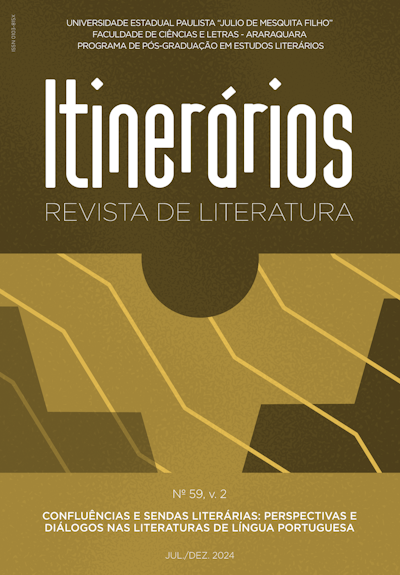Cosmopolitism and lived space in Baiôa sem data para morrer by Rui Couceiro
DOI:
https://doi.org/10.58943/irl.v1i59.19592Keywords:
Contemporary Portuguese Novel, Cosmopolitism, Baiôa sem data para morrer, Rui Couceiro, MelancholyAbstract
In Romance Português Contemporâneo, Miguel Real, a writer and essayist, argues that contemporary Portuguese fiction “tornou-se cosmopolita, eminentemente urbano, dirigido a um leitor global, explorando temas de caráter universal, centrado em espaços geográficos exteriores à realidade nacional” (REAL, 2012, p. 11). In this sense, contemporary Portuguese prose seeks to move away from the characteristics that marked its literature in the first half of the 20th century, with regional, rural novels that aimed to sketch the identity of the Portuguese subject. That said, this work aims to identify traces of cosmopolitism in the novel Baiôa sem data para morrer, published in 2022 by Rui Couceiro, as the novel narrates the life of the residents of the village Gorda-e-Feia in Alentejo, particularly Joaquim Baiôa, who is tasked with rebuilding the village’s houses. With an elderly population, the inhabitants of Gorda-e-Feia live in a state of melancholy and await death. Thus, this study seeks to find elements in the narrative that frame the novel as cosmopolitan, given that the book’s premise does not present this universal character. Furthermore, it aims to analyze the melancholic tone present in the work, as this melancholy is fostered by the delay and social relations that are established among the main characters.
Downloads
Published
Issue
Section
License
Os manuscritos aceitos e publicados são de propriedade da revista Itinerários. É vedada a submissão integral ou parcial do manuscrito a qualquer outro periódico. A responsabilidade do conteúdo dos artigos é exclusiva dos autores. É vedada a tradução para outro idioma sem a autorização escrita do Editor ouvida a Comissão Editorial.

